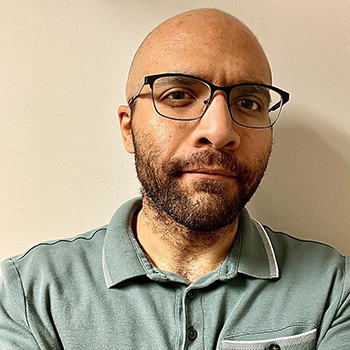
When I was a college freshman, I began embracing Judaism to reconnect to my Jewish ancestry. Although I was raised as a Christian, I come from a multi-ethnic background, which includes German-Jewish heritage. I found great joy in learning about Jewish culture, enjoying food and song over Kabbalat Shabbat, and bonding with my peers at Hillel. But despite my love of Judaism’s cultural and communal aspects, I couldn’t bring myself to fully acknowledge God.
I couldn’t get over the seemingly paradoxical nature of a loving Creator in such an imperfect world, and instead of examining why I felt this way, I opted for the easier path: ignoring God entirely. However, a few years later when I chose to formally convert to Judaism, I discovered a method of acknowledging the Divine I had never considered before: “Process Theology.”
I learned about this concept from Rabbi Jeremy Weisblatt, one of my Introduction to Judaism instructors at Temple Sholom in Chicago, who has had his own theological struggles. He taught me that the Process Theology philosophy views Creation as something that began in the Book of Genesis but continues to this very day, and with every action we take, we act as God’s partners in this continued Creation. “Unlike other theologies that focus on…the large divide between humans and God,” Rabbi Weisblatt explains, “Process Theology seeks to bridge that gap.”
Wow. “Partner in Creation?” Me, God’s partner? This concept blew my mind. I was instantly intrigued and decided to learn more.
From a Jewish perspective, Process Theology sees God as all-loving, but not all-powerful or all-knowing. In fact, no Hebrew or Aramaic terms for those adjectives even exist! In the Torah, God is called powerful, but never all-powerful. God learns, changes opinions, celebrates and mourns – things a Creator with exact knowledge could never do. It is also possible that God knows all imaginable outcomes but allows us to map the destiny of the universe through our actions. Think of God less as an all-knowing man in the sky and more as a transcendental Force compelling us to continue the sacred act of Creation together.
“The emphasis on the unknown future that humans discover along with God becomes incredibly freeing, in my opinion,” argues Rabbi Weisblatt. “God is with us in the journey, not preceding us in a pre-destined path.”
Rabbi Weisblatt’s explanation gave context to hardships in my life and others’. When my father died after a decade-long battle with Alzheimer’s, when I heard stories of horrific acts of abuse toward children, when I saw natural disasters topple communities and leave good people suffering, I became angry at God (if I chose to even acknowledge God’s existence). But the truth is that when atrocities happen, God is just as shocked and sad and enraged as we are. Therefore, when we fight past this chaos in the pursuit of repair and justice, we find God fighting alongside us; and when we succeed and are joyful, God beams with joy in return.
Process Theology has allowed me to see the sacred beauty of our individual power and knowledge. I take pride and comfort in knowing that our actions can surprise, delight, and even inspire God. When we pursue justice, when we strive to be audaciously hospitable, when we build bridges within our communities and with all people in the pursuit of tikkun olam (repairing the world), we create a ripple effect across the cosmos that has the potential to enrich the Jewish landscape and the entire world. I find a sense of adventure in knowing that God is on this journey alongside us, unsure of the choices we’ll make, but compelling us to make the right ones through the “Divine Lure” to “act justly, love mercy, and walk humbly with God” (Micah 6:8).
Related Posts



